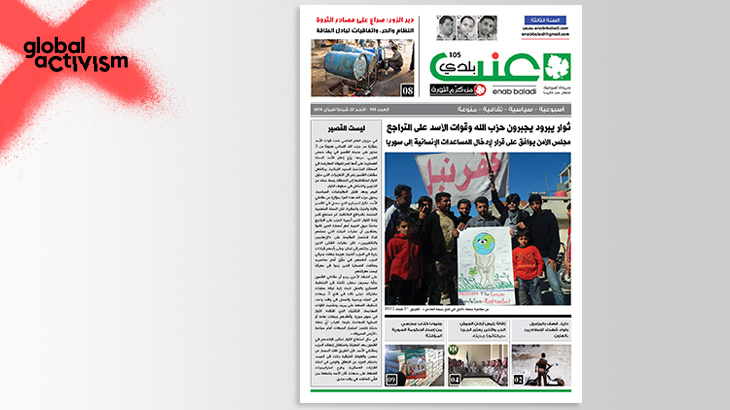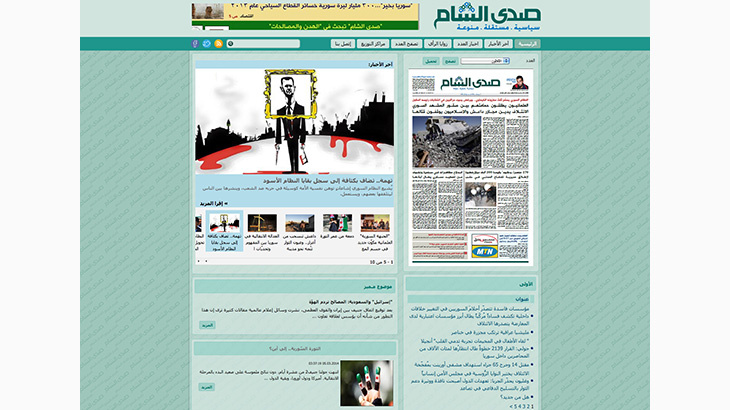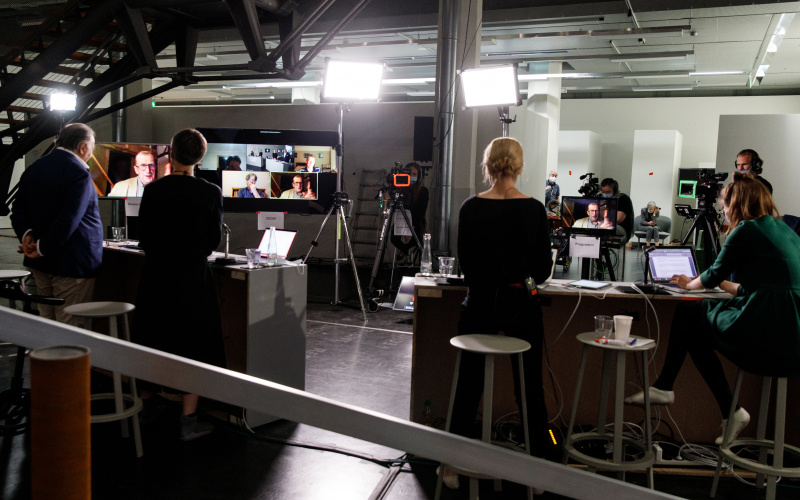The Literal People Power of the Syrians
They have names like Sada al-Sham [Echo of Syria], Enab Baladi [Grapes of My Country], or Souriatna [Our Syria]. The titles of the new public media signal unmistakably what innumerable Syrians have been fighting for over the past three years: for the country that they do not have. The “citizen journalists” in this Orwellian realm are only just starting to achieve the status of citizens of whom Aristotle said: “There is nothing that more characterizes a complete citizen than having a share in the judicial and executive part of the government.”[1] Publishing is neither unfamiliar nor new to them, especially after the introduction of the anonymous Internet in 2000. Nevertheless, fear remained ever-present – which cynical voices claim that the Syrians had actually invented themselves – and acted as a brake on people’s eagerness to communicate. Since March 15, 2001, this has changed. These days, almost every rebel stronghold publishes their own media, with either local or national focus, and everywhere the barriers have been torn down that for two generations stopped the people from mentioning the names of their leaders explicitly. (What perfidious mechanisms of oppression are at work when the mere naming of a name causes people to panic, is hardly imaginable by anyone in this country where jokes about politicians are entirely normal.)
These days, however, Syrians point their fingers at criminals and crimes, and tirelessly hold up the original objective of the uprising – human rights. Especially their warnings about the preaching of extremist confessional beliefs are a provocation, not only for the current regime, but also for the terrorist formations, whose entire raison d’être lies in religious extremism. At the moment their most recent enemy is the “Islamic State in Iraq and Syria” (ISIS); a group, which with its twenty thousand members may be a minority, but it leaves the bloodiest trail in its wake. In 2013, in the space of a few months, ISIS kidnapped between sixty and two hundred civilian journalists, including an employee of Radio Ana [Radio Me]. In a petition, its editorial team demanded an end to the violence against Syrian media workers. Twenty-one Syrian media organizations signed the petition.
www.enab-baladi.com, 2014
In view of the scale of the slaughter in Syria, one might think such a petition ridiculous, and the efforts of Syrian youth honorable, but entirely pointless. Yet petitions are a recognized part of basic democratic rights, and by getting up a petition young people realize their idea of a future Syria under the most extreme circumstances; anyone who is after quick solutions in this war shuts out entirely the historical dimensions of what is happening. The really sensational aspect of Syrian, Egyptian, Yemeni, or Libyan civilian journalism is that it is not being done by well-known dissidents (who very often turn out to be well-educated offspring of their dictatorship by effecting a seamless transition and demanding roles as new guides and leaders). This time, the impetus comes from unknown young people, who before the uprising were not even known as activists. In the Arabic-speaking world, this is an absolute novelty. Not even during the period of the Nahda – a cultural renaissance movement from around 1850 with which the “Arabellions” have been unjustifiably compared – did the masses formulate their idea of a modern era; that was always done by the elites. Since the winter of 2010, however, this division of responsibility is crumbling. Thus it was symptomatic that Yassin el-Haj Saleh, one of the best-known representatives of the Syrian intelligentsia, at a lecture in Paris was recently asked by a Syrian woman, why he and his colleagues had not managed to organize any exchanges with these young people on an equal footing? And why instead what he said sounded so “condescending”? Many of today’s movements will change in the years or decades to come, because the war in Syria will go on that long. Yet every seed of “People Power” that has been sown now will take root. This will be taken care of by the reports that the current actors will leave to the following generations.
Text: Mona Sarkis
Further information on: www.global-activism.de
About the author
Mona Sarkis was born in Germany, and grew up in Syria. She is a freelance journalist with a focus on cultural and sociopolitical subjects in the Middle East, and works mainly for the German World Service and the Neue Zürcher Zeitung. www.monasarkis.de
_________________
Notes
Translated from the German by Isaac Custance.
[1] Aristotle, Politics. A Treatise on Government, trans. William Ellis, 1912, Book 3, Chapter 1.
News Type
News Category
- tracks & records




